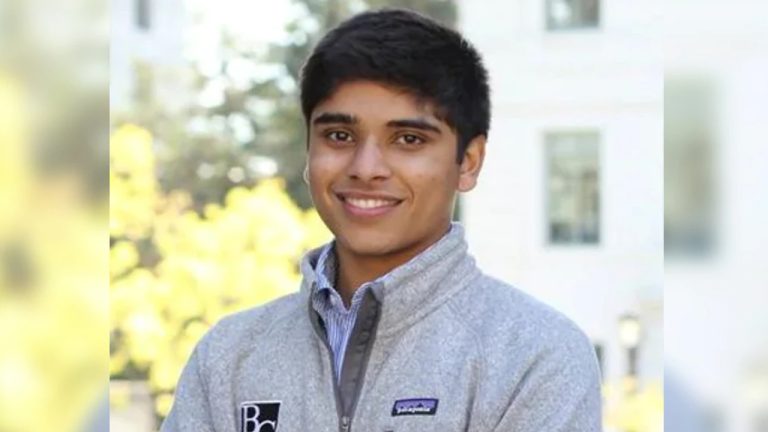 Cryptocurrency and technology proponents have recently been discussing a new bipartisan bill called the “Restricting the Emergence of Security Threats that Risk Information and Communications Technology (RESTRICT)” Act. In addition to targeting firms such as Kaspersky, Huawei, and Tiktok, opponents of the bill believe one of its provisions will punish ordinary Americans for leveraging a […]
Cryptocurrency and technology proponents have recently been discussing a new bipartisan bill called the “Restricting the Emergence of Security Threats that Risk Information and Communications Technology (RESTRICT)” Act. In addition to targeting firms such as Kaspersky, Huawei, and Tiktok, opponents of the bill believe one of its provisions will punish ordinary Americans for leveraging a […] The government of North Macedonia believes that an ongoing wave of false bomb threats against public targets in the country is coming from Russia and Iran. The authorities in Skopje also say that payments related to the attacks have been made with cryptocurrency to conceal traces. Over 700 Facilities Targeted With Bomb Threats in North […]
The government of North Macedonia believes that an ongoing wave of false bomb threats against public targets in the country is coming from Russia and Iran. The authorities in Skopje also say that payments related to the attacks have been made with cryptocurrency to conceal traces. Over 700 Facilities Targeted With Bomb Threats in North […] The U.S. attorney for the Southern District of New York (SDNY), Damian Williams, and the Department of Justice (DOJ) are requesting “proposed modifications” to the bail conditions of former FTX CEO, Sam Bankman-Fried. The SDNY prosecutor is asking the court to prohibit Bankman-Fried from using a smartphone with an internet connection. Instead, the disgraced FTX […]
The U.S. attorney for the Southern District of New York (SDNY), Damian Williams, and the Department of Justice (DOJ) are requesting “proposed modifications” to the bail conditions of former FTX CEO, Sam Bankman-Fried. The SDNY prosecutor is asking the court to prohibit Bankman-Fried from using a smartphone with an internet connection. Instead, the disgraced FTX […]
The judge overseeing Sam Bankman-Fried’s fraud case wants some help navigating the world of encrypted messaging, privacy apps, and virtual private networks.
Attorneys working on behalf of former FTX CEO Sam Bankman-Fried have agreed to pay for a security expert to assist the federal judge overseeing his fraud case in navigating modern encryption technology to aid in possibly modifying Bankman-Fried's bail terms.
Bankman-Fried lawyers Christian Everdell and Mark Cohen sent a letter to Judge Lewis Kaplan on Feb. 21 agreeing with his proposal for a technical professional to aid him.
According to the letter, “the defense has already begun researching and contacting possible experts and anticipates being able to propose one or more potential candidates to the court by the end of the week.”
NEW: Just filed today, the defense expects to propose one or more potential candidates to act as an independent technical expert to advise the court on @SBF_FTX's bail conditions by the end of the week. pic.twitter.com/WfkF5frBAn
— Eleanor Terrett (@EleanorTerrett) February 21, 2023
Judge Kaplan suggested at a bail hearing last week following a tightening of bail terms when it was discovered that Bankman-Fried had been accessing the internet using a VPN (virtual private network).
A VPN obscures and encrypts a user’s internet traffic and is often used to change internet (IP) addresses, to add a layer of security to communications or to access censored content in autocratic regimes.
The judge has been trying to achieve a balance between letting Bankman-Fried access communication channels to prepare his defense and the potential misuse of messaging apps and privacy software.
Judge Kaplan temporarily banned Bankman-Fried from using a VPN or any encrypted messaging apps until his bail terms are settled.
Related: Sam Bankman-Fried may no longer be allowed to play League of Legends
The technical expert will help the judge navigate issues regarding encrypted messages, privacy-focused messaging apps and VPNs.
Bankman-Fried and his attorneys claim he used the VPN on two occasions, to watch the NFL playoffs on Jan. 29 and to watch the Super Bowl on Feb. 12.
Prosecutors have asked for strict bail terms limiting Bankman-Fried’s access to the internet and messaging platforms. They also alleged that VPN use “raised several potential concerns” regarding thepotential access of crypto platforms that have blocked United States users.
 Another member of Sam Bankman-Fried’s inner circle allegedly plans to plead guilty to criminal charges for his role in the alleged fraud that occurred at the cryptocurrency exchange FTX. According to unnamed sources familiar with the matter, Nishad Singh, FTX’s former director of engineering, is attempting to negotiate a deal with New York prosecutors. Sources […]
Another member of Sam Bankman-Fried’s inner circle allegedly plans to plead guilty to criminal charges for his role in the alleged fraud that occurred at the cryptocurrency exchange FTX. According to unnamed sources familiar with the matter, Nishad Singh, FTX’s former director of engineering, is attempting to negotiate a deal with New York prosecutors. Sources […] Prosecutors in the financial fraud case against former FTX CEO Sam Bankman-Fried (SBF) are attempting to persuade the judge to restrict his use of electronic devices. It has been revealed that SBF used a virtual private network (VPN) to watch the Super Bowl through a foreign subscription service he had purchased before his arrest. Prosecutors, […]
Prosecutors in the financial fraud case against former FTX CEO Sam Bankman-Fried (SBF) are attempting to persuade the judge to restrict his use of electronic devices. It has been revealed that SBF used a virtual private network (VPN) to watch the Super Bowl through a foreign subscription service he had purchased before his arrest. Prosecutors, […] Opera, the Web3 browser, and Unstoppable Domains, the non-fungible token (NFT) domain provider, have announced that users can now access all domain endings, including .x, .crypto, and .nft, across Opera’s browsers. Additionally, Opera and Unstoppable are offering a free .nft domain that matches an Opera user’s Twitter handle after account verification. Opera Expands Web3 Capabilities […]
Opera, the Web3 browser, and Unstoppable Domains, the non-fungible token (NFT) domain provider, have announced that users can now access all domain endings, including .x, .crypto, and .nft, across Opera’s browsers. Additionally, Opera and Unstoppable are offering a free .nft domain that matches an Opera user’s Twitter handle after account verification. Opera Expands Web3 Capabilities […]
Lawyers representing the former FTX CEO and U.S. prosecutors requested until Feb. 17 to discuss the impact using a VPN could have on Bankman-Fried's bail conditions.
Prosecutors behind the criminal case against former FTX chief executive officer Sam Bankman-Fried have requested additional time to consider the legal implications of him using a virtual private network, or VPN.
In a Feb. 13 filing with the United States District Court for the Southern District of New York, U.S. Attorney Damian Williams said the Justice Department had uncovered that Bankman-Fried accessed the internet on Jan. 29 and Feb. 12 — the second date being Super Bowl LVII. According to Williams, the government’s view was that using a VPN “raises several potential concerns”, citing examples of U.S.-based users accessing certain international crypto exchanges, and obscuring data from websites Bankman-Fried may be visiting.
“A VPN allows data transfers without detection through a secure, encrypted connection [and] is a more secure and covert method of accessing the dark web,” said the filing. “The defense maintains that the defendant was not using a VPN for any improper purpose and has indicated that it would like the opportunity to engage in discussions with the Government about the issue.”
According to Mark Cohen of the law firm Cohen & Gresser — representing SBF in the criminal case — the former FTX CEO used the VPN to watch sports coverage including the Super Bowl. He added that until the issue was resolved among lawyers, Bankman-Fried would not use a VPN.
“On January 29, 2023, he watched the AFC and NFC Championship games and on February 12, he watched the Super Bowl. This use of a VPN does not implicate any of the concerns raised by the Government in its letter.”
FINAL: The @Chiefs are AFC Champions! #CINvsKC #NFLPlayoffs pic.twitter.com/YcN400duMM
— NFL (@NFL) January 30, 2023
The court document suggested that Bankman-Fried’s legal team was discussing whether the former FTX CEO’s use of a VPN could be included as a condition of his bail. Since SBF’s arrest, prosecutors have already asked the court to restrict Bankman-Fried’s use of certain messaging apps and refrain from contacting current or former FTX and Alameda Research employees. Both Bankman-Fried’s lawyers and U.S. prosecutors requested until Feb. 17 to discuss the impact SBF using a VPN could have on his bail conditions.
Related: Sam Bankman-Fried seeks to access FTX funds
Bankman-Fried’s criminal trial is scheduled to begin in October, when he will face eight counts related to wire fraud and violations of campaign finance laws. A judge ruled on Feb. 13 that civil cases SBF faces from the U.S. Securities and Exchange Commission and Commodity Futures Trading Commission will wait until the conclusion of the criminal case.

The U.S. made the list of regions blocked from using an upcoming website for ApeCoin staking with the related DAO claiming regulations are to blame.
United States-based ApeCoin (APE) holders could miss out on staking rewards after the U.S. was added to a list of regions geo-blocked from using an upcoming APE staking service.
Blockchain infrastructure company Horizen Labs, which is building the site on behalf of the ApeCoin decentralized autonomous organization (DAO), revealed the news in a Nov. 24 update regarding ApeStake.io on Twitter, saying “unfortunately, in today’s regulatory environment, we had no good alternative.”
Ape Staking Update: Big thanks to the talented community devs for their helpful improvements. Bug Bounty AIP delayed us a bit, so we shortened the pre-deposit period by a week to keep our original 12/12 go-live. Alternate front-end sites going live. See card. pic.twitter.com/mgmP7X3SwQ
— Horizen Labs (@HorizenLabs) November 24, 2022
Canada, North Korea, Syria, Iran, Cuba, Russia, and the Russian-controlled areas of Ukraine, Crimea, Donetsk, and Luhansk are also on the block list.
There are likely ways to get around the geo-block. The update noted the website is only an interface to interact with the Ethereum-based open-source smart contract, and “several other” interfaces are being crafted by parties such as exchanges and DeFi platforms.
Prominent Twitter user “Zeneca” told their 312,00 followers that those from regions geo-blocked by ApeStake.io will still be able to stake by interacting with the smart contract directly or using another interface without geo-blocks. Those in blocked regions could also use a virtual private network (VPN) to spoof their location.
The decision to block U.S. users likely resulted from the probe in October by the Securities and Exchange Commission (SEC) into APE creator Yuga Labs. The regulator is investigating if the company’s nonfungible tokens (NFTs) act more like securities and are subsequently violating federal laws.
Meanwhile some Bored Apes are still fetching high prices even during the depths of Crypto Winter. An NFT from Yuga Labs’ flagship Bored Ape Yacht Club (BAYC) collection sold for 800 Ether (ETH), or almost $950,000 at the time of sale on Nov. 23.
BAYC #232 was sold to pseudonymous NFT collector “Keungz” — who seemingly has multiple Yuga Labs NFTs according to their OpenSea profile — by Deepak Thapliydal.
Thanks @dt_chain for the good deal⚓️#NewNFTProfilePic NFT by @BoredApeYC pic.twitter.com/CgIy73fBx5
— Keungz ❤️ Memeland ☠️ YGPZ ♀️ (@keung) November 23, 2022
Thapliydal is the CEO of Web3 infrastructure company Chain and gained notoriety for making the Guinness World Records for buying the “most expensive NFT collectible” after purchasing CryptoPunk #5822 for 8,000 ETH, or $23.7 million, on Feb. 12.
The sale of BAYC #232 was closely followed by another on Nov. 24 for BAYC #1268 between two unidentified wallets for 780 ETH, or almost $940,000 at the time of sale.
The sales are significant as the NFTs sold far above the current floor price for the collection which has seen a decline over the past months.
According to data from NFT Price Floor, the minimum price for a Bored Ape at the time of writing is just under 63 ETH, or about $75,600, and is 80% down in U.S. dollar terms from its May 1 all-time high of 144.9 ETH, or over $391,000 at the time.
The community-led DAO made up of ApeCoin holders has launched its own marketplace to buy and sell NFTs from the Yuga Labs ecosystem.
The aptly named ApeCoin Marketplace built by NFT infrastructure firm Snag Solutions was launched on Nov. 24 and supports transactions of the BAYC, Mutant Ape Yacht Club, Bored Ape Kennel Club, and Otherdeed NFT collections.
In a Nov. 24 Twitter thread Snag Solutions CEO, Zach Heerwagen, said the marketplace “includes unique features” specifically for NFT communities including the ability to stake APE.
1/ The custom marketplace includes unique features built specifically for the BAYC and Otherside communities, including ApeCoin staking and NFT metadata integrations. pic.twitter.com/mem2ZsXNkt
— Zach | Zheerwagen.eth (@ZHeerwagen) November 23, 2022
The marketplace “respects royalties while heavily reducing fees” according to Heerwagen. A 0.25% slice of each sale is held in a multi-signature wallet and used to fund DAO initiatives.
Related: Industry expresses confidence in the NFT space amid the FTX collapse
The marketplace’s support for royalties comes as some other NFT marketplaces such as the Solana (SOL)-based Magic Eden and Ethereum-based LooksRare stopped enforcing creator royalties by default.
Others such as OpenSea have continued to enforce royalties and even created a tool to help NFT creators with on-chain enforcement of royalties, allowing them to blacklist the sale of their NFTs on royalty-free marketplaces.

The NYM Innovation Fund will support research on mixnets and privacy-enhancing technologies.
Swiss privacy startup Nym Technologies announced it has secured $300 million in commitments from venture capital partners in support of the NYM Innovation Fund. Nym intends to issue grants to developers and incentivize them to build on top of Nym's decentralized infrastructure. This funding comes a couple of weeks after its native token NYM launched on major crypto exchanges, including OKX and Huobi.
At the time of publication, the NYM token traded at an average price of $0.92, and its 24-hour trading volume has witnessed a spike since the fund's announcement. The day that NYM was first listed on April 14, National Security Agency whistleblower Edward Snowden addressed attendees at the token launch event in Paris, where he attributed contemporary internet privacy problems to the decisions of antiquated 1970s computer networks.
Nym hosts mixnets, or systems of network protocols that obscure individuals' metadata footprints and protects applications, as well as their coins and wallets, against mass surveillance. Applications built on Nym work to improve upon third-party privacy services offered on virtual private networks (VPNs) and Tor.
The Nym Innovation Fund investors include Andreessen Horowitz, Polychain, Greenfield One, Huobi Incubator, Tioga Capital, Eden Block, NGC Ventures, HashKey Capital, Figment, Fenbushi Capital, Tayssir Capital, KR1, Lemniscap, and new backers OKX Blockdream Ventures.
The company tweeted that the venture capitalists "from our previous rounds are doubling down on their support" of Nym at a time when "everyone is terrified of VCs "dumping" on projects."
Among the first grant winners for Nym Innovation Fund are the Tails software, used by Snowden to leak NSA secrets, as well as university researchers Carmela Troncoso's privacy-enhanced COVID contract tracing system and Daniel J. Bernstein, tasked with speeding up Nym's cryptographic packet format called Sphinx that powers both the Lightning Network and Nym.
The first round of grants aims to "improve privacy on the Internet for the common good," according to the company. The Nym Foundation was also created with plans to issue an open call for additional applicants and proposals.
Related: Nym Technologies raises $13M to develop surveillance-evasion platform
The only way to protect privacy in the Metaverse is by taking a fully decentralized approach, argues @colinpape https://t.co/fzNP9LP4ym
— Cointelegraph (@Cointelegraph) February 20, 2022
Harry Halpin, chief executive officer of Nym Technologies, stated the Innovation Fund represents "a drop in the ocean compared to the endless amounts of cash possessed by vested interests at Silicon Valley companies and nation-states that benefit from mass surveillance." He also exclusively told Cointelegraph that the funds will go towards the best academics in the world:
"Cryptocurrency originally had a vision of defending the privacy of ordinary people, but U.S. government funding has historically ignored privacy in favor of NSA mass surveillance. Up until recently, VCs have funded privacy-invasive advertising business models by companies like Facebook," said Halpin.